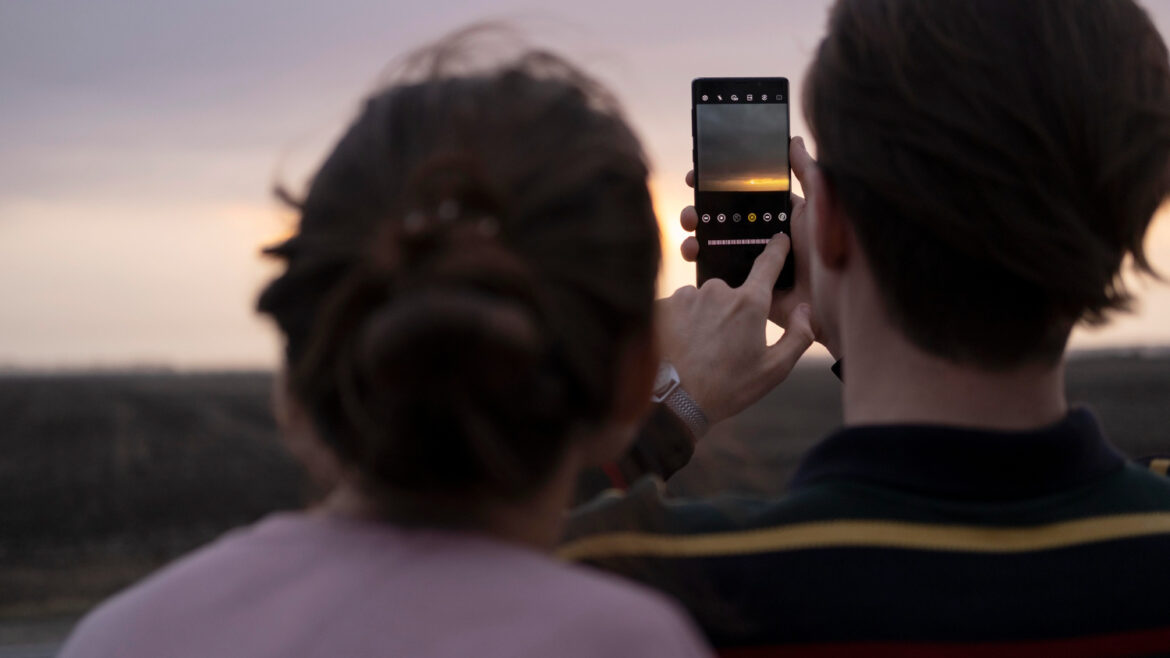Photography has changed more in the last few years than it did in the previous few decades, and much of that shift comes from the integration of AI into everyday tools. I no longer rely solely on hardware to capture the perfect shot because AI-powered camera apps have made it possible to take stunning photos even with modest devices. These apps analyze the scene, adjust settings, enhance colors, and sometimes even suggest composition improvements in real time. The result is photography that looks professional without requiring me to carry expensive gear or spend hours editing.
Why AI Camera Apps Are Transforming Photography
Traditional cameras required me to understand settings like aperture, ISO, and shutter speed to get a balanced photo. While those technical details still matter, AI has taken over much of the decision-making. By recognizing lighting conditions, detecting subjects, and optimizing exposure instantly, these apps allow me to focus on the creative side of photography.
What excites me most is the way AI adapts to different environments. Whether I’m indoors, outdoors, or shooting at night, the app figures out the best combination of settings on its own. I’ve also noticed how these apps reduce the need for editing after the fact. Instead of spending extra time adjusting contrast or removing noise, I get images that are nearly ready to share as soon as I take them.
Google Camera (GCam)
One of the best examples of AI in photography is Google Camera, often called GCam. This app takes full advantage of computational photography. Features like HDR+ combine multiple exposures to create a balanced, detailed shot even in difficult lighting. Night Sight is another feature I rely on because it makes low-light photography look natural instead of grainy.
Portrait mode on GCam also impresses me. The way it separates the subject from the background feels far more accurate than traditional software blurs. Every time I use it, I get portraits that look like they were shot on a high-end DSLR. The fact that it delivers this level of quality with just a smartphone camera shows how powerful AI can be in photography.
Adobe Photoshop Camera
Adobe Photoshop Camera is another app that showcases how AI enhances creativity. It doesn’t just improve image quality, it also gives me artistic tools to experiment with. The app uses Adobe’s Sensei AI technology to analyze each scene and automatically suggest filters and effects that match the subject.
What I enjoy about it is how it helps me explore creative directions I might not have considered. Whether I want a realistic enhancement or a more surreal, artistic look, the app makes adjustments without feeling artificial. Unlike some filter-heavy apps, it retains image quality while still giving me room to personalize my photos.
Camera FV-5
Camera FV-5 combines manual controls with AI support, which makes it appealing when I want both precision and automation. I can adjust settings like exposure or white balance manually, but the app also steps in with real-time optimizations. It’s almost like having an intelligent assistant that suggests what works best while still giving me the option to take full control.
When I shoot landscapes, I find the dynamic range improvements especially useful. The app balances the bright and dark areas of the photo so that both are visible, creating images that feel more realistic and polished. It’s a good blend of professional-level tools with AI-powered convenience.
Focos
Focos has become one of my favorites for portrait photography. It uses AI to create depth-of-field effects that rival professional cameras. After taking a photo, I can even adjust the focus point and aperture virtually, which gives me flexibility I’ve never experienced with standard camera apps.
I like how Focos makes my portraits look cinematic without much effort. The subject stands out clearly, and the background has a smooth blur that feels natural instead of forced. It also offers advanced lighting effects that simulate studio conditions, which adds another level of creativity to my photos.
Prisma Photo Editor
Prisma gained attention for its artistic filters, and while it started as more of an editing app, its camera features have evolved with AI integration. What makes it interesting is how it transforms everyday photos into artistic pieces that look hand-painted or sketched.
I’ve used it when I want photos that go beyond realism and lean into creative expression. AI helps retain detail and structure while overlaying unique artistic styles. While I wouldn’t use it for professional portraits, it’s a fantastic tool for creating distinctive, eye-catching visuals.
Cymera
Cymera is another app that shows how AI makes photography accessible to anyone. It includes a wide range of filters, editing tools, and beauty effects, but what sets it apart is the real-time AI enhancement. Skin smoothing, blemish removal, and auto-adjustments happen instantly as I take the shot.
I use Cymera when I want quick, polished selfies or casual photos that don’t need much manual editing. The app takes care of lighting and corrections on the fly, leaving me with photos that are ready to share without much extra work.
Lumii
Lumii is a photo editing app with a built-in AI camera that focuses on enhancing image quality through automated adjustments. The app analyzes each shot for exposure, contrast, and sharpness, then applies corrections immediately. I find it especially useful for outdoor photography because it adjusts for challenging lighting conditions.
What I appreciate is the balance between automation and creativity. While the app enhances photos automatically, it also gives me tools to tweak the final look. This combination lets me achieve high-quality results while still adding my personal touch.
Camera MX
Camera MX is a versatile app that uses AI to improve both photography and video recording. Its “Live Shot” mode captures moments before and after pressing the shutter, giving me the chance to pick the best frame. AI helps stabilize and adjust these shots, reducing blur and improving clarity.
The app is also reliable for real-time enhancements, which makes it great for everyday photography. Whether I’m capturing action shots or still images, it produces results that feel sharper and more professional than standard camera apps.
VSCO
VSCO is widely known for its editing tools, but its AI-powered camera features deserve attention as well. The app analyzes scenes to suggest filters that match the mood and lighting conditions. I find it useful when I want a consistent aesthetic across multiple photos.
What I like most is how subtle the AI adjustments feel. Instead of over-processing images, VSCO enhances them in ways that preserve a natural look. It’s perfect for lifestyle photography, where I want images that are polished but not overly edited.
Comparing The Options
Each of these apps has strengths depending on what I need. When I want the highest-quality photos with minimal effort, Google Camera is my go-to. For creative experimentation, Adobe Photoshop Camera and Prisma give me artistic flexibility. When I focus on portraits, Focos consistently delivers impressive results. Cymera works well for quick social media photos, while Camera FV-5 and Lumii balance manual control with AI enhancements. Camera MX provides versatility in both photos and videos, while VSCO ensures my images have a cohesive, stylish look.
I’ve learned that AI-powered camera apps don’t just make photography easier, they expand what’s possible. They save time, enhance quality, and open creative possibilities that would otherwise require expensive equipment or advanced editing skills.
Final Thoughts
AI has completely redefined how I approach photography. These apps act as intelligent partners that guide me toward better results without taking away creative control. Whether I want professional-quality portraits, vivid landscapes, or unique artistic shots, there’s an AI-powered app designed for that purpose.
What excites me most is that these tools keep improving. With every update, the algorithms get smarter, the results get sharper, and the possibilities expand. Photography used to be about mastering technical settings, but now it’s about harnessing the intelligence of software to tell better visual stories.
For me, AI-powered camera apps have made photography not just more accessible but also more enjoyable. Every time I open one of these apps, I feel like I have a professional studio in my pocket, ready to help me capture the world in stunning detail.

